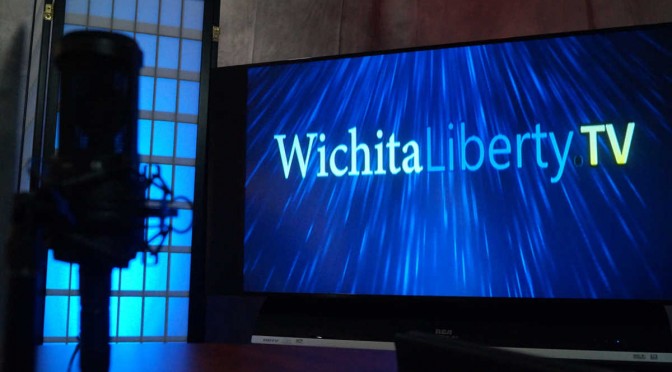Tag: Liberty
-

Marijuana Tax Revenue in Kansas
Tax revenue from the legalization of marijuana won’t make much difference, despite boosters’ claims.
-

Stephen Ware: Debate on masks, freedom
Can libertarians accept a mask mandate?
-

WichitaLiberty.TV: Author Lenore Skenazy, “America’s Worst Mom”
Author Lenore Skenazy talks about today’s children and the free-range kids movement.
-

WichitaLiberty.TV: Larry Reed, Foundation for Economic Education
Lawrence W. Reed, President of Foundation for Economic Education, joins Bob and Karl to discuss the connection between liberty and character, our economic future, and I, Pencil.
-

WichitaLiberty.TV: Dr. Wolf von Laer of Students for Liberty
Dr. Wolf von Laer of Students for Liberty joins Bob and Karl to talk about young people and the cause of liberty.
-

Panhandling in Wichita
The City of Wichita cracks down on panhandling.
-

WichitaLiberty.TV: Matt Kibbe of Free the People
Matte Kibb of Free the People joins Karl Peterjohn and Bob Weeks to discuss FreeThePeople.org and our relationship with government.
-

Judge Melgren defends Constitutional protections
By Karl Peterjohn While it has become increasingly common for members of the U.S. Supreme Court to make news by public comments, particularly during their summer recess, Wichita Pachyderm Club members had the opportunity for Kansas federal district Judge Eric F. Melgren to quote from his judicial colleagues in a way of defending the Constitution’s…
-

WichitaLiberty.TV: David Schneider on Convention of States
David Schneider of Citizens for Self-Governance joins Bob Weeks and Karl Peterjohn to explain the Convention of States project.
-

Year in Review: 2016
Here are highlights from Voice for Liberty for 2016. Was it a good year for the principles of individual liberty, limited government, economic freedom, and free markets in Wichita and Kansas?
-

Beware of government arts spending
Art is too important to be dependent on politicians and injecting politics into anything inevitably tarnishes it, writes Lawrence W. Reed of Foundation for Economic Education.
-

WichitaLiberty.TV: Charter schools in Kansas, and a victory for speech and association
In this episode of WichitaLiberty.TV: Kansas has essentially no charter schools. Here’s why we need them. AFP Foundation scores a victory for free speech and association. Episode 120, broadcast June 5, 2016.